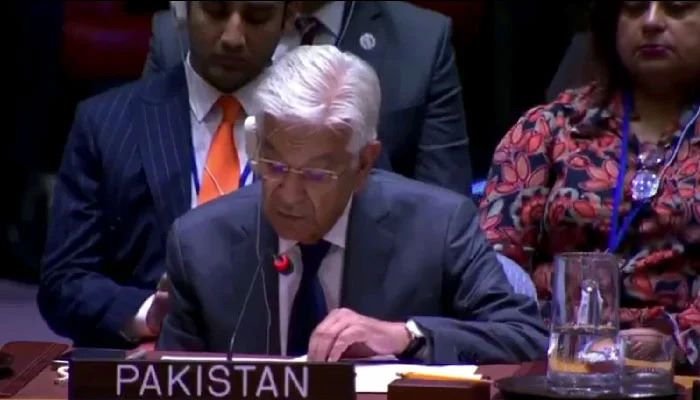United Nations (TDI): Defense Minister Khawaja Asif has cautioned that advances in artificial intelligence (AI) could make future wars far more destructive if left unchecked, urging the international community to prevent an arms race in emerging technologies.
Speaking at a high-level debate on AI in the UN Security Council on Wednesday, Asif noted that while AI has streamlined decision-making, it has also created “conditions where future wars may be significantly more dangerous.” He stressed that technological progress must remain aligned with the UN Charter and used for the benefit of humanity.
Highlighting Pakistan’s first national AI policy, launched earlier this year, the minister said it reflects Islamabad’s commitment to innovation with safeguards against misuse. “The world must adopt collective measures to prevent an uncontrolled arms race in this domain,” he said. “AI should be harnessed to promote peace and development, not conflict and instability.”
Asif reaffirmed Pakistan’s support for international initiatives to balance technological advancement with the imperatives of global peace and security.
Read More: How Artificial Intelligence is Changing the Future of Global Diplomacy
Opening the debate, UN Secretary-General Antonio Guterres underscored that AI is already transforming economies, societies and the global information space. Used responsibly, he said, the technology can help forecast food insecurity, aid de-mining, and anticipate outbreaks of violence.
But he also warned of growing dangers, including AI-enabled cyberattacks that can cripple critical infrastructure within minutes and the erosion of trust in information systems. “Innovation must serve humanity, not undermine it,” he said.
Read More: UN adopts first-ever resolution on mobilizing Artificial Intelligence
Guterres pointed to the recent establishment of an Independent International Scientific Panel on AI and an annual Global Dialogue on AI Governance by the General Assembly. He called on states to ensure human authority is preserved in all uses of force.
He renewed his appeal for a legally binding treaty by 2026 to ban lethal autonomous weapons systems that operate without human oversight, and insisted that decisions involving nuclear weapons “must rest with humans, not machines.”



